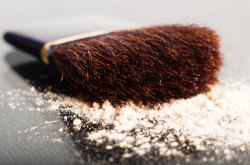Top Class Actions’s website and social media posts use affiliate links. If you make a purchase using such links, we may receive a commission, but it will not result in any additional charges to you. Please review our Affiliate Link Disclosure for more information.
The issue of whether talcum powder is a cause of female cancers has long been debated, but Harvard gynecologic oncologist Dr. Daniel Cramer believes that it’s hazardous. Now results of a large study only reinforce what he has been saying for years.
“I have always advised gynecologists [that] if they examine a woman and see that she is using talc in the vaginal area, tell her to stop,” stated Cramer, who practices as Brigham and Women’s Hospital in Boston, Mass., at an American Association for Cancer Research meeting, according to the oncology website OncLive. “There are alternatives, such as cornstarch-based powder. This study strongly reinforces that advice.”
Cramer was referring to a study that found women who use baby powder with talc have a 30 percent increased risk of developing baby powder ovarian cancer.
Talc use increased ovarian cancer risk overall by about 30 percent, but the risk increased three- to fourfold among women reporting long-term, frequent use of talc powder.
Cramer told the group that the large case study, which looked at more than 2,000 women with ovarian cancer and a similar figure for women who did not have the disease, is the first to provide evidence of a “dose-response relationship” between talc-based powder and ovarian cancer. Some 20 other previous epidemiologic studies never supported a dose-response relationship.
He speculated that the nexus between talc-based powders, such as Johnson’s Baby Powder and Shower to Shower, may involve shock proteins, mucins, and other molecules that predispose to chronic inflammation.
“Inadequate cleansing after use of talc might allow the powder to migrate into the lower genital tract and initiate an inflammatory reaction,” he said, noting that talc particles have been found in lymph nodes and other tissues of ovarian cancer patients.
Cramer, a professor at Harvard Medical School, has for years researched the epidemiology of ovarian cancer in an effort to explain risk factors and biomarkers for the disease. His research has shown three events that increase the risk for ovarian cancer associated with chronic inflammation affecting the lower or upper genital tract: Cosmetic talc powder use; repeated ovulation not interrupted by pregnancy, breastfeeding, or oral contraceptive use; and endometriosis.
Other lab studies exposing rats, mice, and hamsters to asbestos-free talc have resulted in mixed outcomes – some showing tumor formation, others not finding anything, and some human studies report an elevated risk.
The theory is that talcum powder particles can migrate from the vagina to the ovaries after being applied to the genital area on sanitary napkins, diaphragms or condoms. While talcum powder is helpful in reducing friction and absorbing moisture, its particles can migrate from the vagina, through the uterus and fallopian tubes.
At one time, talc contained asbestos (naturally present in minerals such as magnesium and silicon). While it no longer does, “It still has minute fibers that take years to dissolve,” according to the study.
In 2013, a federal jury found that Johnson & Johnson talc-based powders played a role in the 2006 ovarian cancer diagnosis of a woman who used the powders every day for 30 years. She sued the company for negligence and failure to warn consumers about the risk
Do YOU have a legal claim? Fill out the form on this page now for a free, immediate, and confidential case evaluation. The attorneys who work with Top Class Actions will contact you if you qualify to let you know if an individual lawsuit or class action lawsuit is best for you. [In general, baby powder cancer lawsuits are filed individually by each plaintiff and are not class actions.] Hurry — statutes of limitations may apply.
ATTORNEY ADVERTISING
Top Class Actions is a Proud Member of the American Bar Association
LEGAL INFORMATION IS NOT LEGAL ADVICE
Top Class Actions Legal Statement
©2008 – 2024 Top Class Actions® LLC
Various Trademarks held by their respective owners
This website is not intended for viewing or usage by European Union citizens.
Get Help – It’s Free
Join a Free Baby Powder Cancer Class Action Lawsuit Investigation
If you used Johnson’s Baby Powder, Shower to Shower, or another talcum powder product and were diagnosed with ovarian cancer, you may have a legal claim. Family members of loved ones who died of ovarian cancer can also join. Submit your information now for a free case evaluation.
An attorney will contact you if you qualify to discuss the details of your potential case at no charge to you.













